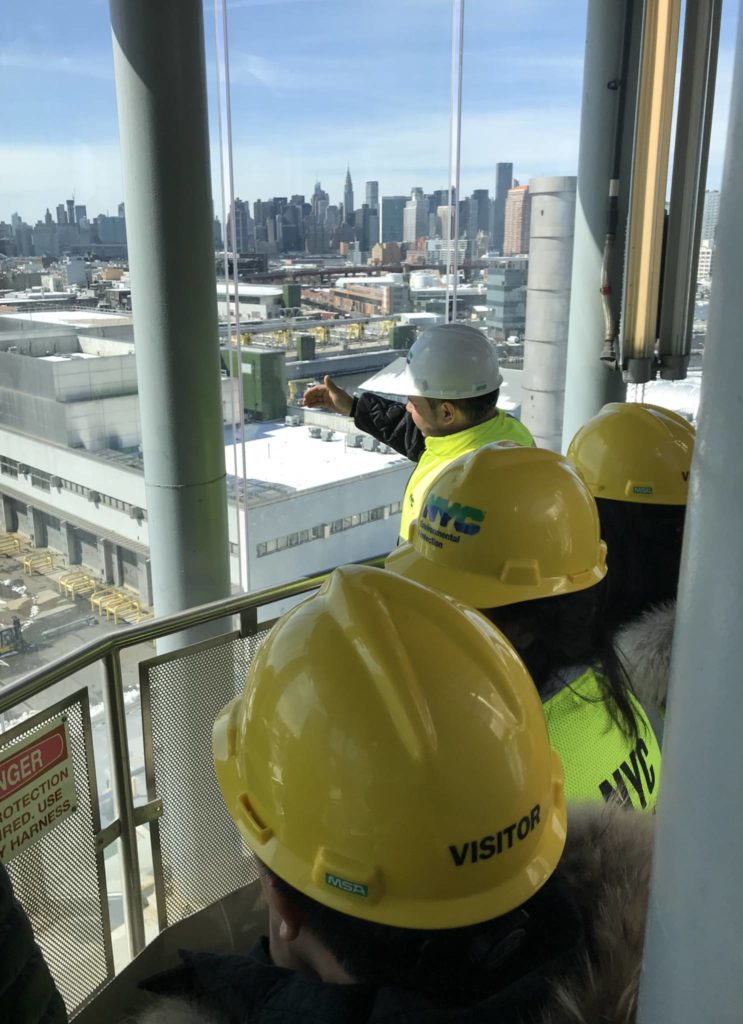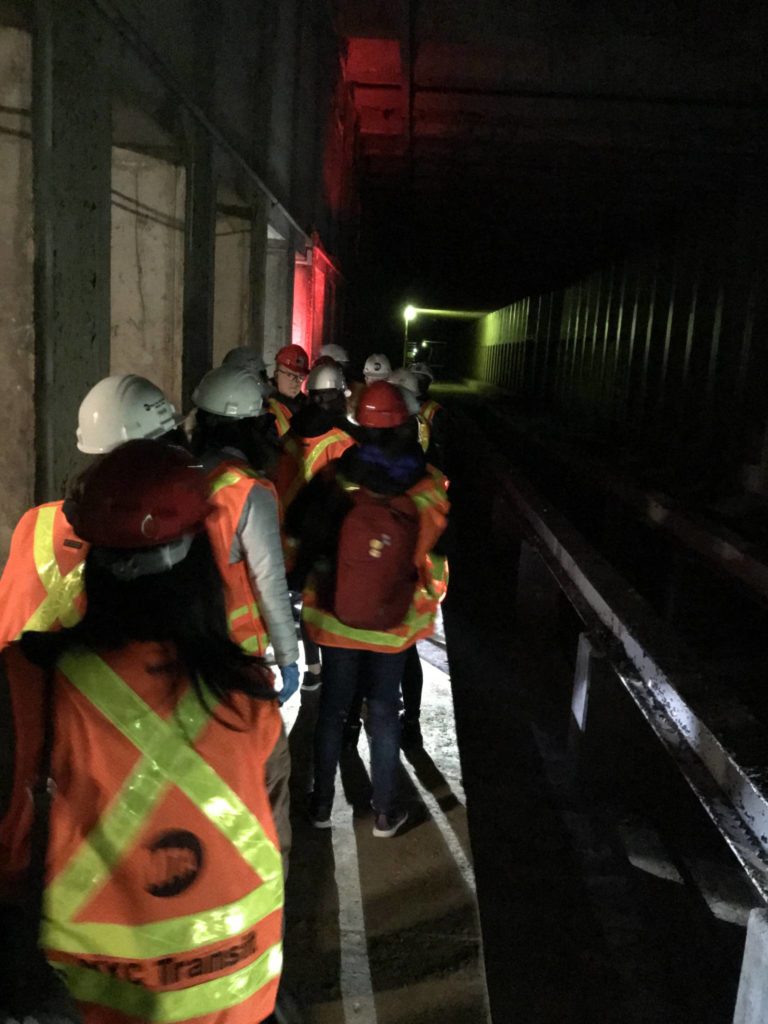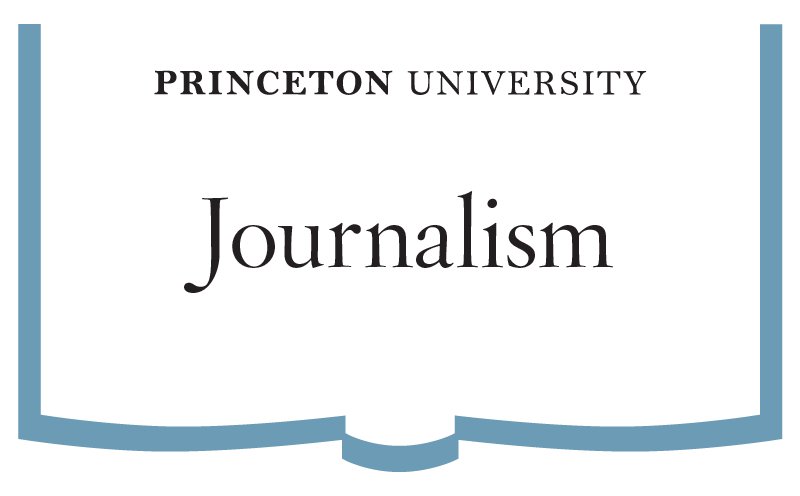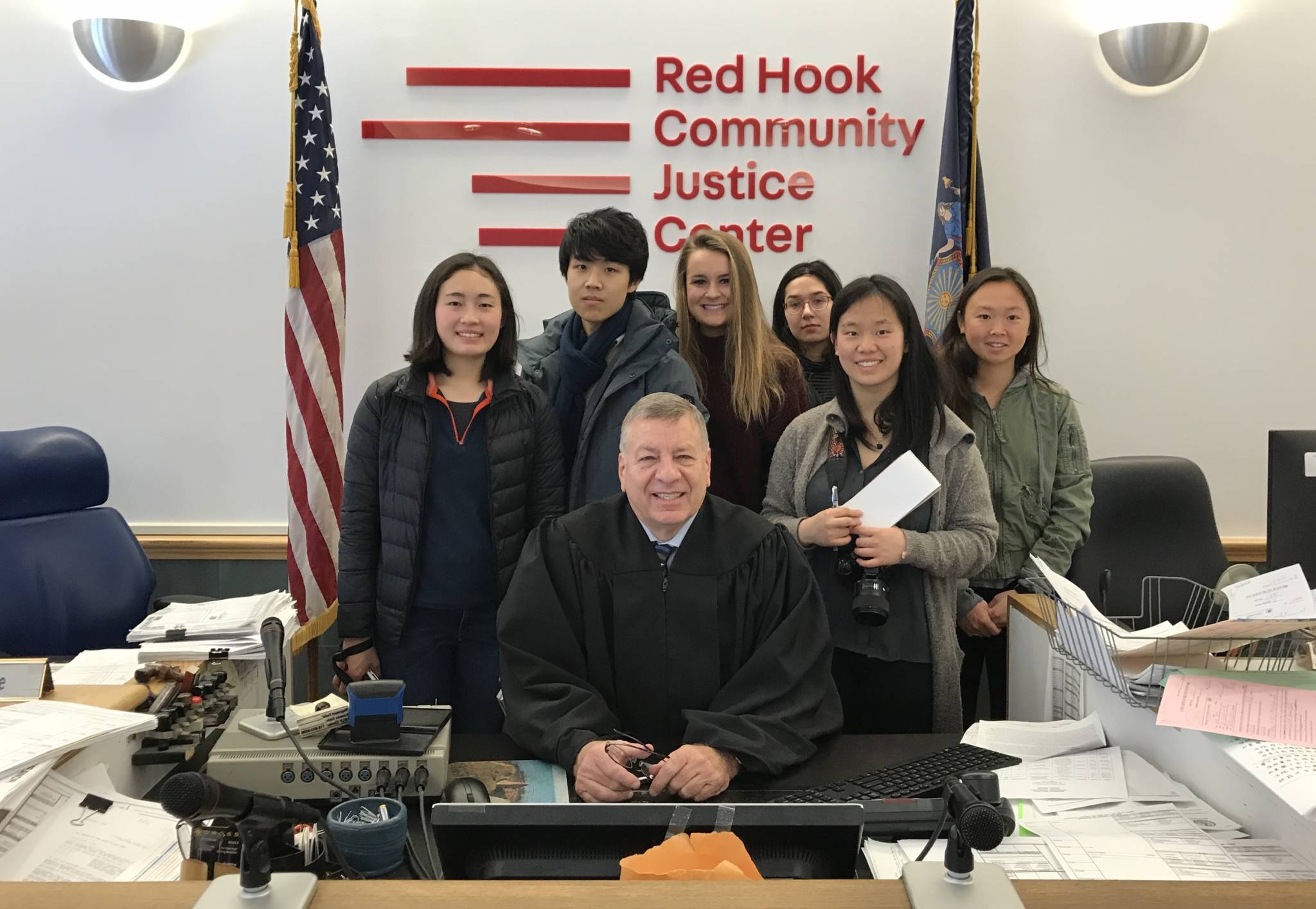A group of nine journalism students recently spent their spring break in, under, and over New York City, reporting on unheralded corners of America’s biggest city.
Crisscrossing the city with MetroCards, the students in JRN 440—The Literature of Fact spent upwards of 12 hours a day in the field. Their travels took them to the chaotic hallways of a housing court in the Bronx where 2,200 cases a day are heard, most of them eviction actions; a sewage treatment plant in Brooklyn that helps make it possible for 8.6 million people to live in sanitary conditions; a one-woman off-Broadway play, the playwright and star of which was interviewed by the students; a subway tunnel dug in Harlem 45 years ago that still has not been connected to the rest of the system; and more.

A representative of the New York City Department of Environmental Protection explains the workings of Brooklyn’s Newtown Creek Wastewater Treatment Plant to JRN 440 students.
At a symposium at the Henry Street Settlement House, the class learned about Lillian Wald, America’s first public-health nurse and a champion of immigrants, orphans, and dispossessed on the Lower East Side of Manhattan. Wald founded the Henry Street Settlement House in 1893, and the symposium on her legacy was held in the original house, in her old dining room. Wald was also instrumental in building New York City’s first public playground, founding the Visiting Nurses Service, and creating the National Association for the Advancement of Colored People.
At the headquarters of the New York Police Department, the students heard from veteran police officers about the ingenuity, legwork, and luck involved in certain high-profile cases. They also saw firsthand some of the surveillance technology that sweeps up vast amounts of information throughout the city. During the fourth nor’easter in March, the group trekked to an innovative court and community justice center in Red Hook, Brooklyn, where they sat alongside a judge as he heard cases.
When not eating on the run, the students compared notes over meals at Ethiopian, Oaxacan, Georgian, Korean, Chinese, and Mediterranean restaurants.
The spring-break trip was led by Jim Dwyer, a longtime New York City reporter and columnist who has been with The New York Times since 2001. He is teaching JRN 440 this semester as a visiting Ferris Professor of Journalism, and he has woven the students’ opportunity to do on-the-ground reporting in the city throughout the course’s syllabus.
“By reporting on the city’s physical and human infrastructure, we could see the forces that shape New York,” Dwyer explains. “And when we couldn’t literally see them, as when we were deep underground, standing right under giant mains that carry one billion gallons of mountain water to the city every day, we could feel their power.”

With support from the Metropolitan Transit Authority, the JRN 440 group investigates an unused subway tunnel under Second Avenue in Harlem.
This semester’s JRN trip to New York City is just the latest installment in the Ferris Seminars’ Princeton Global Reporting Initiative. In Fall 2017, Deborah Amos of NPR News took the students in her course, JRN 449—International News: Migration Reporting, to Manitoba, Canada, to learn about Canada’s approach to resettling refugees and its attitude toward those seeking asylum. In Spring 2017, Elaine Sciolino of The New York Times took her students in “JRN 456—Local Reporting: Paris as a Case Study” to the City of Lights for the chance to report on the behind-the-scenes workings of that city.
This summer will mark the third time that Journalism, together with the Seeger Center for Hellenic Studies, takes six students to Athens for the summer seminar JRN 465/HLS 465—Reporting on the Front Lines of History in Greece. Led by Ferris Professor in Residence Joe Stephens, the intensive, six-week course is an exceptional experience for students interested in learning the practices and skills of accomplished international correspondents.
The Global Reporting Initiative will continue in Fall 2018, when three JRN courses will include fall-break reporting trips led by visiting Ferris Professors.
Kira Kay, creator and director of the Bureau for International Reporting, will teach a course on “Reporting After War: Post-Conflict Nation Building in Bosnia,” where she will bring students for in-field reporting during a national election. Kathleen McCleery, a special correspondent and freelance producer for PBS NewsHour, will bring her class to a yet-to-be-determined state with a hotly contested Congressional race for reporting opportunities as part of “Politics and the Media: Covering the 2018 Elections.” And Amos will again teach “Migration Reporting,” the course that compares American and Canadian immigration and refugee policies and practices and that features a trip to Winnipeg.













